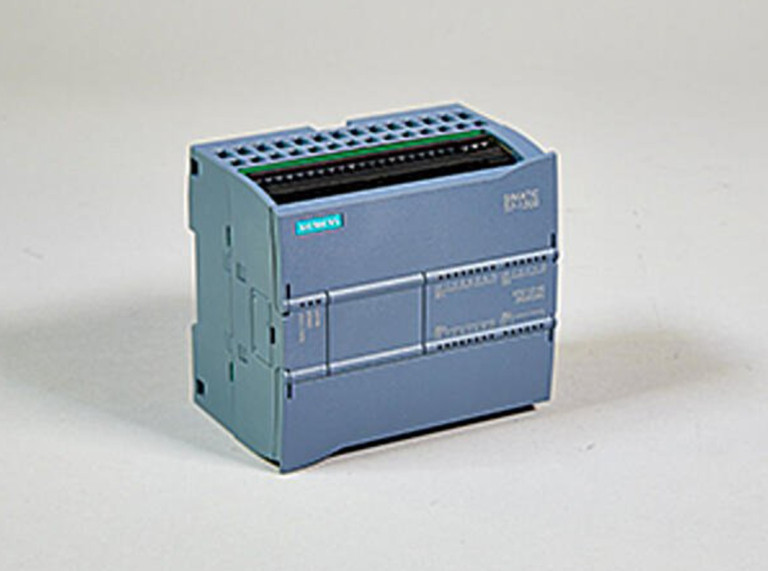 130 000+ items in stock
130 000+ items in stockWhat PLC / programmable logic controller means
PLC is the abbreviation of the Programmable Logic Controller. In Czech it is called “programovatelný logický automat”.
This is a minature industry computer complete with the necessary hardware and software designed to be able to assume and perform control functions, such as process control, machine control etc.
Originally, PLC systems were used in particular as manufacturing control means. They had replaced built-in relays and provided both the assembly line operation and machine control.
Nevertheless, as the industry automation and deployment of industrial robots started to be gradually applied also in other areas of human activity, PLC systems have been increasingly used also in other, non-manufacturing sectors.
PLCs allows for the automation in such areas as:
- electrical engineering,
- communication infrastructure,
- security,
- health care and medical care,
- manufacturing,
- etc.
What a PLC consists of:
Every single PLC system consists of two main components. 1. Central processing unit (CPU) and 2. digital or analog I/O modules.
CPU
A microprocessor, which starts the control program. The unit loads data from input moduls and sends instructions to the input modul accordingly.
I/O modules
Input and output moduls operate in real time as the data interface connecting the CPU with the controlled device. Thanks to them the PLC system knows and controls the current status of the control devices adjusting it to what it has been programmed for.
Types of PLCs
The PLC systems may be categorized into two groups as required according to their modularity to compact (fixed) and modular.
- Compact (fixed) PLC system: It contains all components in a single device – CPU, I/O modules and also the power supply unit, as the case may be. This is virtually a completed solution with very limited extension options.
- Modular PLC system: This system consists of separate modules, which can be variously combined and complemented. Such a PLC system features virtually unlimited extension options.





